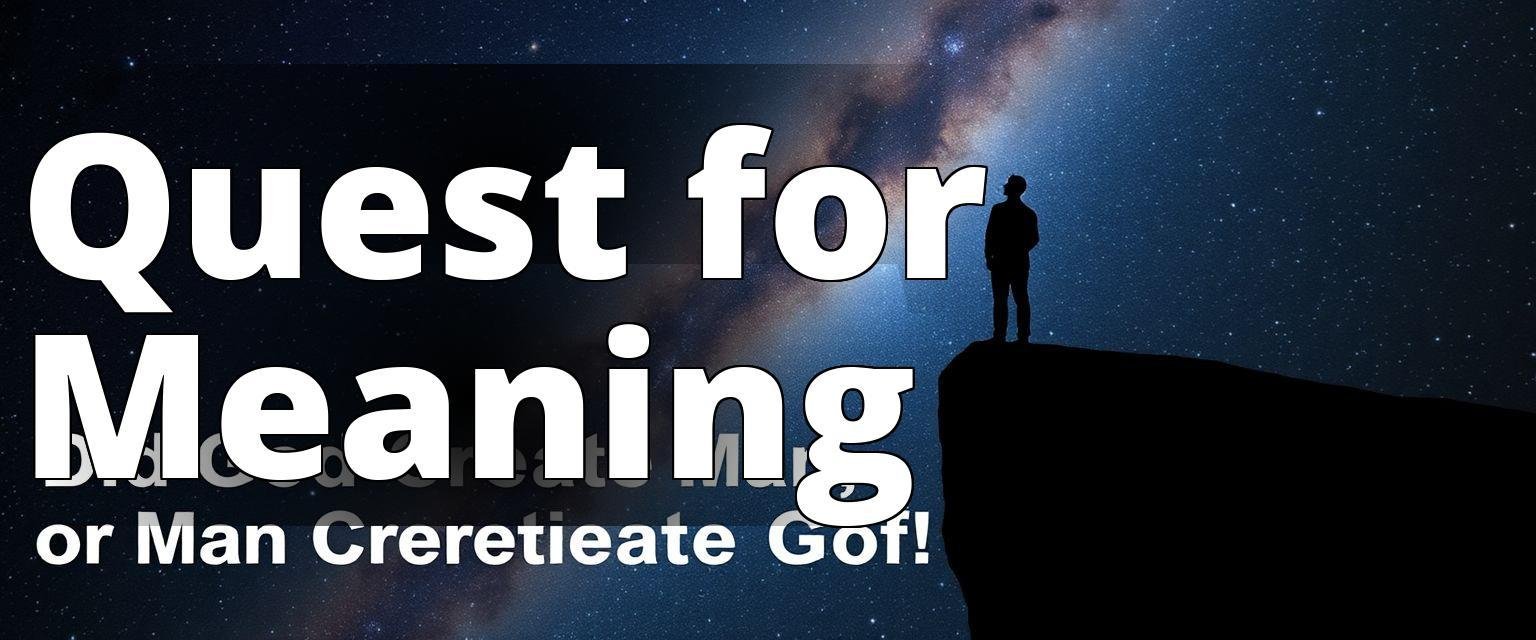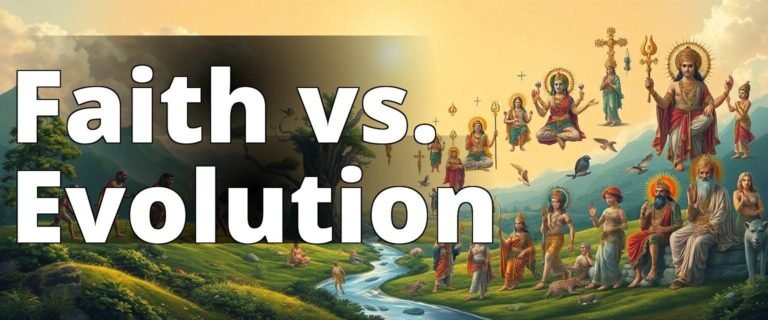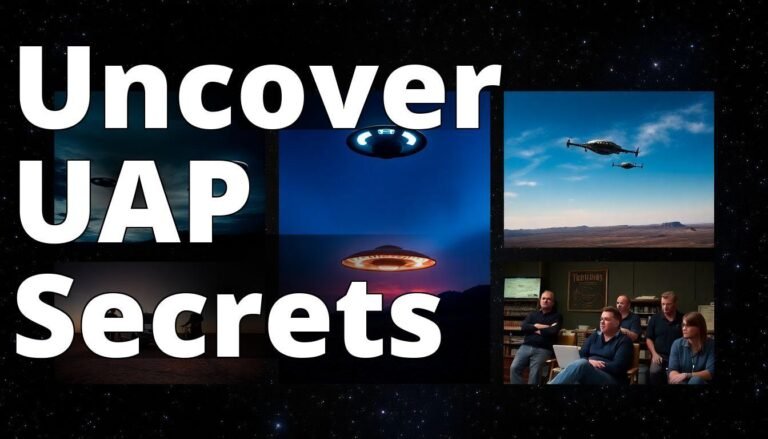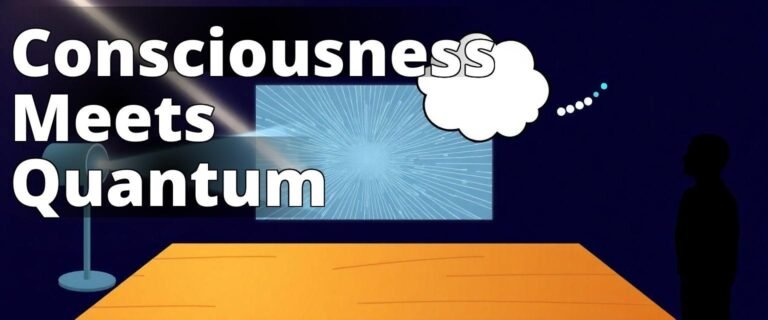Did God Create Man, or Man Create God?
In the vast expanse of human history, one question has resonated through the corridors of time: Did God create man, or did man create God? This question not only challenges our perceptions of faith and religion but also delves into the very essence of human existence. It’s a debate that has sparked countless discussions, books, and even wars. As we navigate this complex topic, it’s essential to consider both historical and contemporary perspectives. With the advent of modern science and psychology, we now have tools to explore this question more deeply than ever before.
Religion, in its myriad forms, has shaped human civilization for millennia. From the majestic pyramids of Egypt to the intricate temples of India, religious beliefs have been the bedrock of artistic and architectural achievements. But why did humans feel the need to create these symbols of faith? Is it possible that religion was a construct devised by humans to explain the inexplicable, to find comfort in an unpredictable world?

Understanding Religion’s Impact
Explore the complex relationship between religion and human history, and discover key insights on the topic.
– Religion has shaped societies, influencing laws, morals, and cultural practices throughout history.
– The debate on whether God created man or vice versa raises questions about the origins and significance of belief systems.
– Historical events and philosophical movements have often been responses to religious ideologies, highlighting the dynamic interplay between faith and human development.
The God Who Wasnt There
The documentary “The God Who Wasn’t There” offers a provocative critique of Christianity, challenging traditional narratives while encouraging viewers to question the origins and evolution of religious beliefs. This film doesn’t merely aim to debunk religious myths but invites viewers to consider how religions, particularly Christianity, have adapted over time to remain relevant. It poses a crucial question: Are religious beliefs inherently divine, or are they a reflection of human needs and desires?
The Historical Context of Religion
To understand the role of religion in human history, we must first examine its roots. Anthropologists suggest that early humans created gods and myths as a way to understand natural phenomena and the universe’s mysteries. Before the scientific method, religion provided explanations for the sun’s rise, the rain’s fall, and the thunder’s roar. What started as a means of explaining the unknown gradually evolved into a structured belief system that governed societal norms and ethics.
As civilizations grew, so did the complexity of their religious beliefs. From the polytheism of ancient Greece to the monotheism of the Abrahamic religions, each culture developed its own conception of the divine. These beliefs were not just spiritual but also political tools used by leaders to unite people and legitimize their rule. Religion, therefore, played a dual role: it was both a way to explain the world and a means to control it.
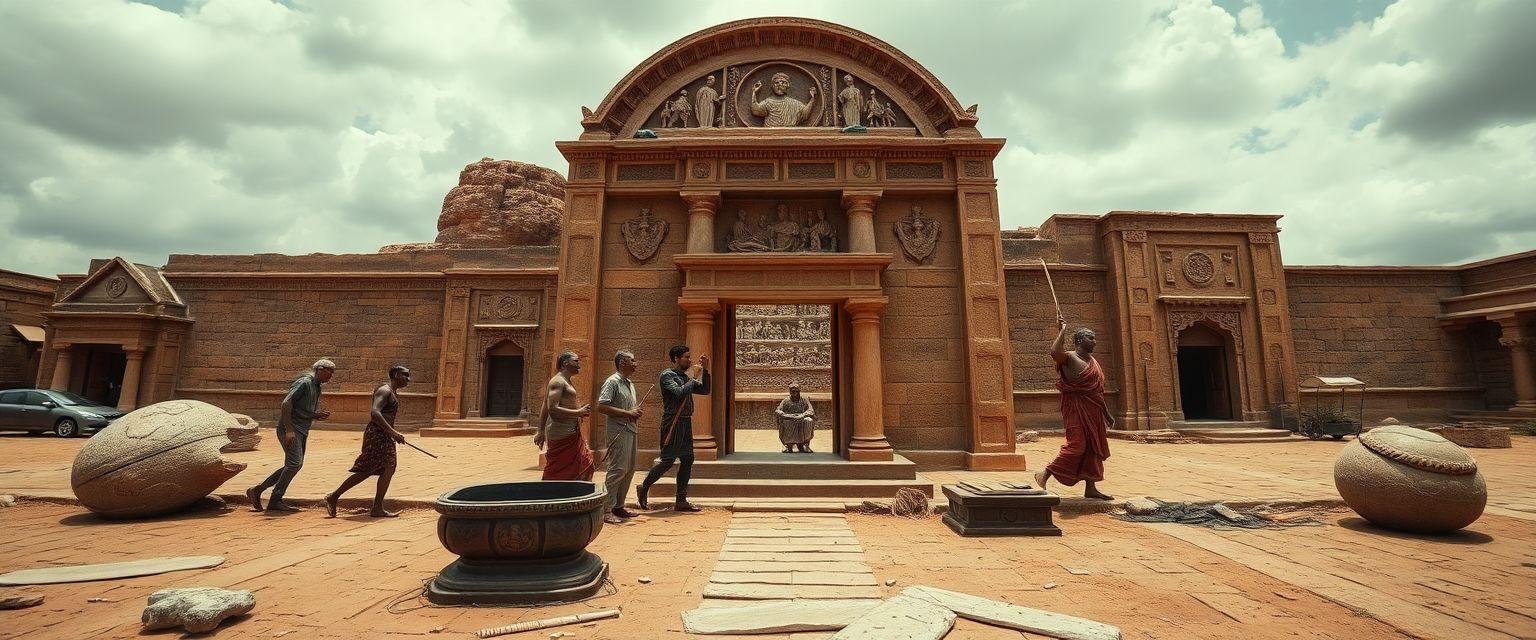
Insider Tip: Dr. Jane Goodall, renowned anthropologist, once remarked, “Understanding our roots allows us to see the continuity in human thought and the evolution of belief systems.”
The Psychological Aspect of Religion
Beyond historical context, the psychological aspect of religion is crucial in understanding its enduring presence. Sigmund Freud, the father of psychoanalysis, argued that religion is an illusion, a construct of the human mind created to provide comfort in the face of existential dread. According to Freud, humans project their fears and desires onto a divine figure, creating a god that embodies their ideals and offers solace.
Modern psychology supports this view, suggesting that religious beliefs can fulfill essential psychological needs. For many, faith provides a sense of purpose, community, and moral guidance. It offers answers to life’s big questions and a framework for understanding suffering and mortality. In a world full of uncertainty, religion can be a source of stability and hope.

Thought-Provoking Question: If religion primarily serves as a psychological comfort, does it lose its significance in an increasingly secular world where science fills the gaps of the unknown?
Religion and Morality
One of the most significant arguments for religion’s divine origin is its role in establishing moral codes. Many believe that without a divine moral compass, humanity would descend into chaos. Yet, historical evidence suggests that moral codes existed long before organized religion. Early human societies relied on reciprocal altruism and social contracts to maintain order and cooperation.
Philosopher Immanuel Kant argued that moral law is inherent in human nature, independent of divine command. This perspective challenges the notion that religion is necessary for morality. Moreover, the rise of secular humanism and the development of ethical frameworks based on reason and empathy further question religion’s role as a moral authority.
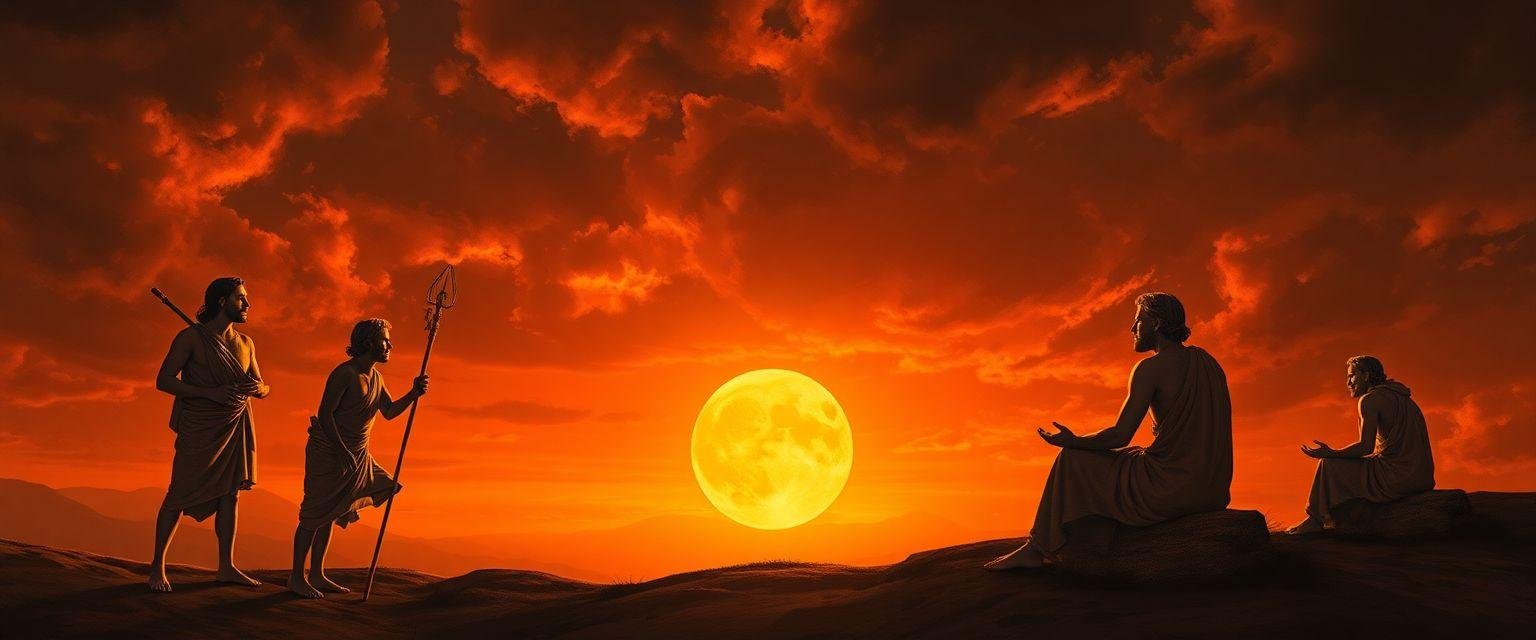
Thought-Provoking Question: Can morality truly exist independently of religion, or is it inherently tied to spiritual beliefs?
The Scientific Perspective
Science, with its emphasis on empirical evidence and rationality, offers a contrasting perspective to religious belief. The theory of evolution, for instance, provides a natural explanation for the diversity of life, challenging the creationist views held by many religions. Similarly, advancements in cosmology and physics have offered insights into the universe’s origins, often contradicting religious narratives.
Yet, some argue that science and religion are not mutually exclusive. Renowned physicist Albert Einstein famously stated, “Science without religion is lame, religion without science is blind.” This suggests a harmonious coexistence where science explains the how, and religion explores the why. While science can answer questions about the universe’s mechanics, it may not address the existential queries that religion seeks to answer.

Thought-Provoking Question: Is it possible for science and religion to coexist without conflict, or will they always stand at odds?
The Future of Religion
As we move further into the 21st century, the future of religion remains uncertain. With the rise of secularism and the increasing reliance on science, traditional religious beliefs face challenges. However, the human need for connection, meaning, and understanding suggests that spirituality, in some form, will persist.
New forms of spirituality, often less dogmatic and more personal, are emerging. These spiritual practices focus on mindfulness, wellness, and a deeper connection to the self and the world. They represent a shift from organized religion to individual spirituality, highlighting the evolving nature of human belief systems.

Insider Tip: Historian Yuval Noah Harari notes that as technology advances, so too will the nature of human belief, potentially leading to new forms of spirituality that align with scientific understanding.
Conclusion
The question of whether God created man or man created God is complex and multifaceted. It intersects history, psychology, morality, and science, each offering unique insights into human belief systems. While traditional religious beliefs may face challenges in the modern era, the enduring presence of spirituality suggests that the human quest for meaning and understanding is far from over.
As we continue to explore this profound question, its essential to remain open-minded and consider all perspectives. Whether one believes in a divine creator or views religion as a human construct, the exploration of these ideas enriches our understanding of ourselves and the world around us.
Final Thought: In a world increasingly driven by technology and science, will spirituality and religion continue to evolve, or will they become relics of the past?
For more on the intersection of religion and human history, visit our main sitemap.

Answers To Common Questions
What is the main argument of ‘Did God Create Man, or Man Create God’?
The debate centers on whether divinity shaped humanity or vice versa.
Who are the key figures in the discussion of this topic?
Scholars, theologians, and philosophers have contributed significantly.
How has religion influenced human history over the centuries?
Religion has shaped cultures, laws, and moral systems throughout history.
What evidence supports the idea that God created man?
Many religious texts and traditions claim divine creation as a truth.
Can atheism and religion coexist in discussions about human origins?
Yes, both perspectives provide valuable insights into existential questions.
Why do some people reject the idea that God created man?
Many argue that science offers more compelling evidence for human evolution.

